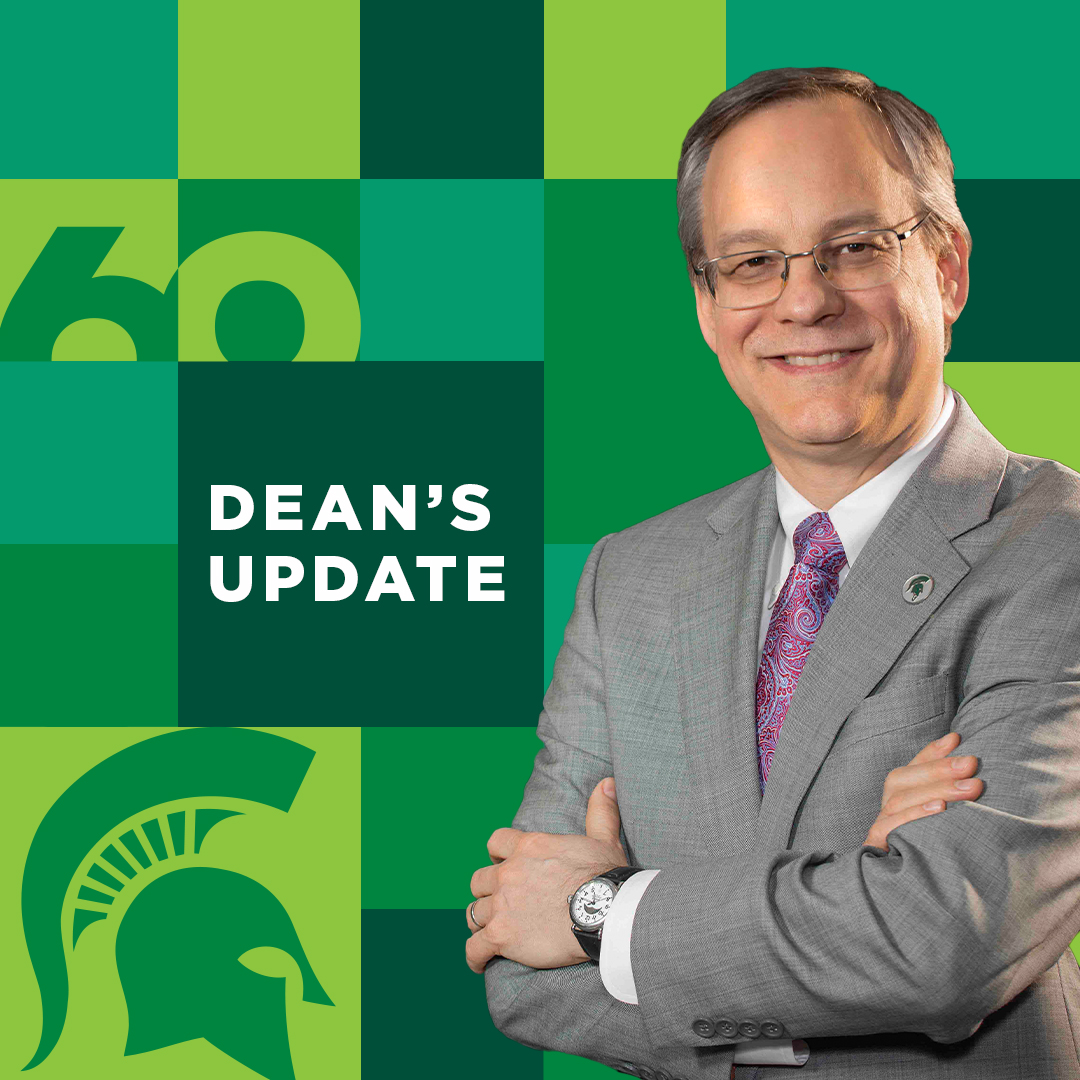Dean's Update
July 26, 2024 - Aron Sousa, MD

Friends,
This week, our 60th anniversary celebration of the college’s founding focuses on our dedication to creating a rural medicine workforce and engaging with our rural communities. You can catch up with our students in Traverse City, the Upper Peninsula, and Midland on our website, and this week’s Town Hall is dedicated to our rural programs. Andrea Wendling, MD, senior associate dean for academic affairs, and Ross Ramsey, MD ('09), were joined by MS4 students Dennis Boynton, Spencer Jessop and Lindsay Sandell to discuss the college’s rural programs and social impact.
For most of the college’s 60-year history, our rural programming has been focused on educating physicians, but we also have a rural certificate as a part of the MPH program preparing the public health professionals to serve with rural communities. In our work with the MIDOCs program, we have focused on supporting residents in rural communities as well. In an attempt to bring the benefits of academic medicine to our rural communities, we have worked and invested to create research programs in rural communities.
The research part of our mission in rural communities has been through some ups and downs over the years, but we have a remarkable, sustained research presence in Traverse City and additional research programs across rural communities. Jean Kerver’s ECHO grant is based in Traverse City, and her colleague based in the region, Kelly Hirko, PhD, is a cancer epidemiologist working with the community. Beyond that, the MIRACLE Center, which addresses maternal health disparities across several populations, is impacting more than 7 million individuals in 20 rural counties. And, it is exciting to recognize that we expect Rx Kids to be implemented in the eastern Upper Peninsula next year.
More than half of the college’s NIH funding is in the realm of “dry bench” work that does not require a traditional laboratory. The rural projects from above are examples of these “dry bench” efforts. But the other half of our research happens in a laboratory and might involve cool microscopes, organoids, and interesting critters, like honeybees. One of MSU’s multidisciplinary, multi-college research teams, including CHM faculty, has sorted out that honeybees can smell cancer and can even distinguish between types of cancer. Before you get too excited, do not skip your colonoscopy to visit your local apiarist seeking eusocial bees trained to sniff out cancer. First off, bees do not really sniff in the ways people and dogs do. Rather they use their antennas to “smell” chemicals in the air; sense vibration, sound, and motion; and measure carbon dioxide. Second, these bees were not trained or conditioned to physically react to a smell, although people have done that. Really. In this case, the researchers used electrodes to measure the different activities of chemoreceptors in the honeybee antennae when exposed to chemicals found in different kinds of lung cancer. I have to wonder if fish can do the same thing in aqueous solutions.
While most of a dean’s days are filled with meetings, spreadsheets, and meetings, I occasionally have the chance to enjoy some of the great work done by our people. Thursday morning, I was able to welcome about 130 parents, patients, families, teachers, clinicians, and researchers to the 8th annual MSU Autism & Neurodevelopmental Disabilities Family and Professionals Conference. The conference engages all these participants as experts and colleagues in their role, which brings a special richness and value to the conference proceedings. Jane Turner, MD, a badass emeritus of the college, developed the idea for the conference, and told me her concept of including families in the planning and programming of meetings and conferences came from the events created by the founding chair of pediatrics, Bill Weil, MD. Sixty years on from our beginnings, the values of our founders continue.
Serving the people with you,
Aron
Aron Sousa, MD, FACP
Dean, Michigan State University College of Human Medicine

